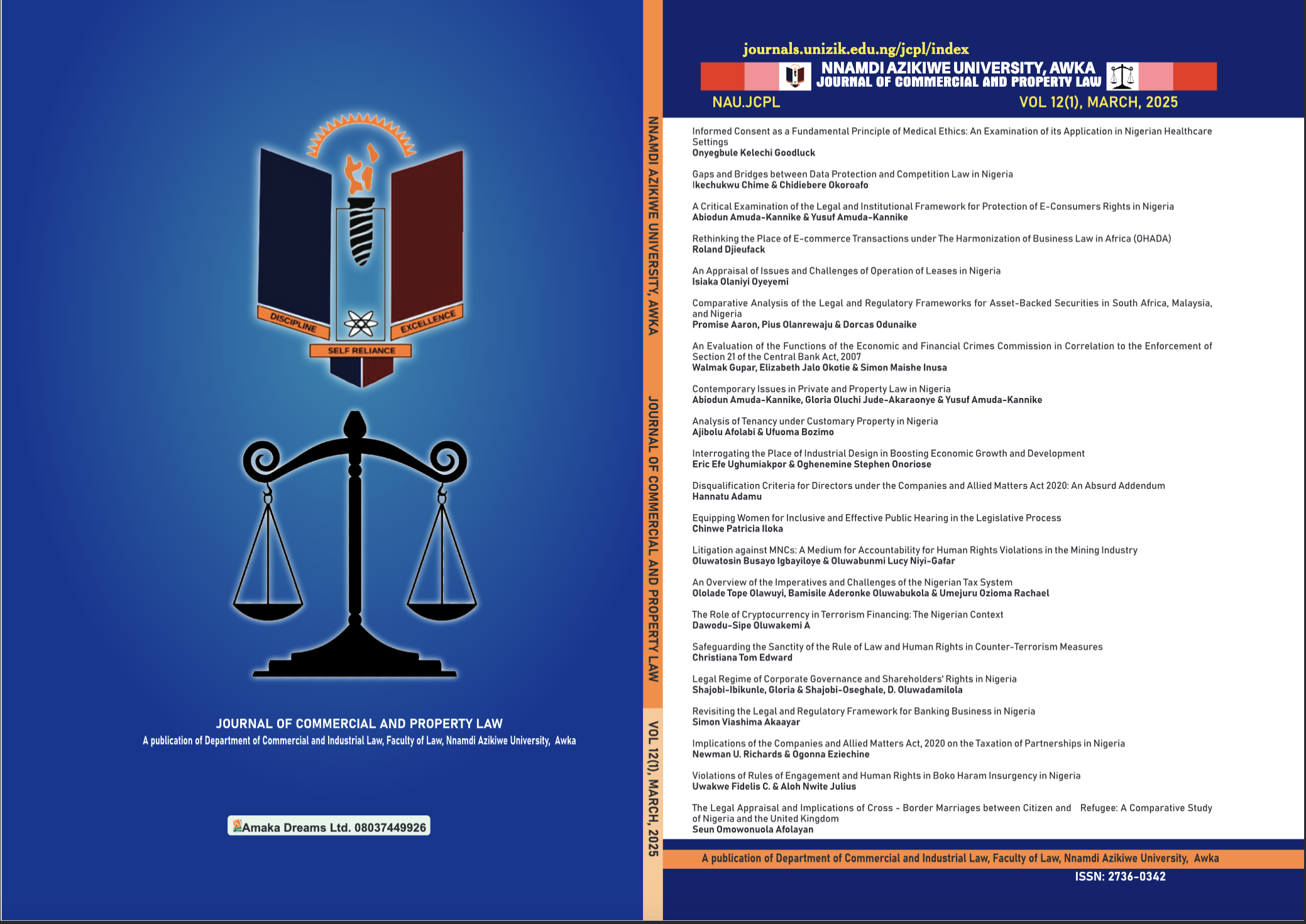Equipping Women for Inclusive and Effective Public Hearing in the Legislative Process
Keywords:
Affirmative Action, Discrimination, Legislative, Politics, Rights, WomenAbstract
Women constitute an integral part of every society, making up more than half of the global population. However, their involvement in decision-making processes, particularly in legislative houses, remains appalling. This lack of representation negatively impacts the female gender, hindering their ability to influence policies that affect them directly. This study critically examines the process of equipping women for inclusive and effective participation in public hearings within the legislative process. In the legislative sphere, “Public Hearing” refers to special meetings organized by House Committees to gather and analyze relevant information, expert opinions, and public advice on proposed legislation, regulations, or policy issues related to governance. The research adopts a doctrinal research methodology, using an expository and analytical research design. Data was primarily collected from various legal literatures available in both physical and electronic libraries. The study observes that Nigerian women face several challenges when participating in public hearings. One of the major obstacles is the negative perception and misinterpretation of the intent and purpose of these hearings by Ministries, Departments, Agencies (MDAs), stakeholders, and other respondents. The political sphere has long been regarded as a male-dominated domain, but there is a growing demand for increased female participation. Despite the global call for gender inclusivity, such as the Beijing Conference's recommendation for countries to allocate 35% of political positions to women, Nigeria has yet to achieve this benchmark. The marginalization of women in politics is largely attributed to social, cultural, and religious factors. The study highlights the bold commitments of the House of Representatives to enhancing women's legislative effectiveness and efficiency, ultimately contributing to transparent and purposeful governance in Nigeria. To address these challenges, it is recommended that Nigerian women be actively involved in all political matters. Additionally, civil society organizations should intensify their efforts in sensitizing and empowering women to participate more effectively in the legislative process.

